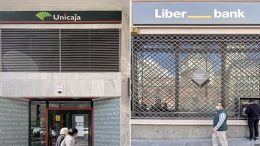Spain’s Big Banks Lose €5.55 Bn Due To Coronavirus; Santander Posts Losses In Its Annual Results For The First Time
Santander, BBVA, CaixaBank, Bankia, Sabadell and Bankinter posted combined losses of €5.55 Bn last year, with their accounts badly affected by the coronavirus, compared to the more than €13.5 Bn achieved in 2019. These negative figures are mainly due to the great losses suffered by Santander, €8.77 Bn, the first of its history, compared to the €6.51 Bn it earned in 2019. Santander’s losses came after increasing provisions for the covid-19 crisis and assuming an impairment of €12.6 Bn in the value of its subsidiaries in the UK, the US and Poland.










